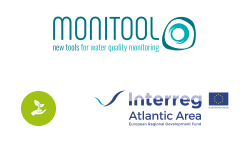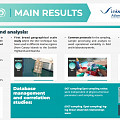 Dear stakeholders involved in water quality monitoring and assessment,
The final MONITOOL stakeholders' conference took place on 19 May 2023 in Cagliari, bringing together more than a hundred people involved in environmental monitoring and coastal water quality assessment.
We take this opportunity to inform you of the main outputs of this European Atlantic Area project (2017-2023), involving 8 partners and 10 associated partners, the first of its size (2.48 million euros) focused on DGT...
Dear stakeholders involved in water quality monitoring and assessment,
The final MONITOOL stakeholders' conference took place on 19 May 2023 in Cagliari, bringing together more than a hundred people involved in environmental monitoring and coastal water quality assessment.
We take this opportunity to inform you of the main outputs of this European Atlantic Area project (2017-2023), involving 8 partners and 10 associated partners, the first of its size (2.48 million euros) focused on DGT... 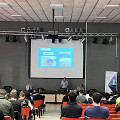 MONITOOL project meets schools by UNICA
On April 5th, a dissemination event organised by researches belonging to Dipartimento di Scienze Mediche e Sanità Pubblica of UNICA was held at the Institute “Michele Giua”, in Cagliari (Italy), to discuss about air and water pollution.
The event was attended by several classes from the institute, with more than 100 students in total.
The day began with an introduction to the topic of air and water pollution by Alessandro Desogus, who then presented two...
MONITOOL project meets schools by UNICA
On April 5th, a dissemination event organised by researches belonging to Dipartimento di Scienze Mediche e Sanità Pubblica of UNICA was held at the Institute “Michele Giua”, in Cagliari (Italy), to discuss about air and water pollution.
The event was attended by several classes from the institute, with more than 100 students in total.
The day began with an introduction to the topic of air and water pollution by Alessandro Desogus, who then presented two...
Our MONITOOL partners Jean-Louis Gonzalez (IFREMER) and Natalia Montero (AZTI), guest editors of a Special Issue of the Water journal
Friday, 16 September 2022
Friday, 16 September 2022
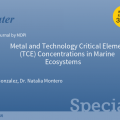 Our MONITOOL partners Jean-Louis Gonzalez (IFREMER) and Natalia Montero (AZTI), guest editors of a Special Issue of the Water journal
The Special Issue is entitled "Metal and Technology Critical Element (TCE) Concentrations in Marine Ecosystems" and the "Call for Papers" is currently open until next March 2023.
The aim of this Special Issue is to provide a better understanding of biogeochemical processes that control the behaviour of trace metals and TCEs...
Our MONITOOL partners Jean-Louis Gonzalez (IFREMER) and Natalia Montero (AZTI), guest editors of a Special Issue of the Water journal
The Special Issue is entitled "Metal and Technology Critical Element (TCE) Concentrations in Marine Ecosystems" and the "Call for Papers" is currently open until next March 2023.
The aim of this Special Issue is to provide a better understanding of biogeochemical processes that control the behaviour of trace metals and TCEs...
MONITOOL project, present at the International Symposium on Marine Sciences 2022
Wednesday, 31 August 2022
Wednesday, 31 August 2022
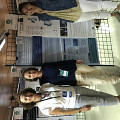 MONITOOL project, present at the International Symposium on Marine Sciences 2022
ITC and AZTI partners attended the Iberian Seminar on Marine Chemistry (SIQUIMAR) in the framework of the International Symposium on Marine Sciences (ISMS), 6 – 8 July 2022, in Las Palmas de Gran Canaria, Spain
This event (https://isms-canarias.com) brought together a Spanish and Portuguese chemical scientists involved in ocean and coastal processes, but open to other Iberoamerican and European scientists.
In...
MONITOOL project, present at the International Symposium on Marine Sciences 2022
ITC and AZTI partners attended the Iberian Seminar on Marine Chemistry (SIQUIMAR) in the framework of the International Symposium on Marine Sciences (ISMS), 6 – 8 July 2022, in Las Palmas de Gran Canaria, Spain
This event (https://isms-canarias.com) brought together a Spanish and Portuguese chemical scientists involved in ocean and coastal processes, but open to other Iberoamerican and European scientists.
In...
MONITOOL project participation in the Summer Internships Program 2022 of the IST (Lisbon)
Tuesday, 30 August 2022
Tuesday, 30 August 2022
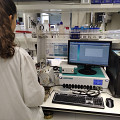 MONITOOL project participation in the Summer Internships Program 2022 of the IST (Lisbon)
The MONITOOL project participated, through its project partner Instituto Superior Técnico (IST), in the Summer Internships Program 2022, promoted by the Chemical Engineering Department of IST.
For two weeks (11th – 22nd July), a BSc. Student of Chemical Engineering engaged in the laboratory analysis of spot water samples collected by MONITOOL partners upon extension of the project. Aiming at identifying...
MONITOOL project participation in the Summer Internships Program 2022 of the IST (Lisbon)
The MONITOOL project participated, through its project partner Instituto Superior Técnico (IST), in the Summer Internships Program 2022, promoted by the Chemical Engineering Department of IST.
For two weeks (11th – 22nd July), a BSc. Student of Chemical Engineering engaged in the laboratory analysis of spot water samples collected by MONITOOL partners upon extension of the project. Aiming at identifying... 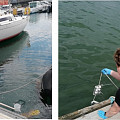 DCU Sampling Campaign (2022) in the Irish Coastal Region
Researchers Martin Nolan MSc, and Dr. Chloe Richards from Dublin City University (DCU) have completed a seven-day sampling campaign within two Dublin coastal areas, Dun Laoghaire and Poolbeg marina.
Deployments followed the guidelines set by the MONITOOL project and used DGT passive samplers as well as spot sampling. An increase in metal contamination levels is expected within these areas due to the anti-fouling paint present on the...
DCU Sampling Campaign (2022) in the Irish Coastal Region
Researchers Martin Nolan MSc, and Dr. Chloe Richards from Dublin City University (DCU) have completed a seven-day sampling campaign within two Dublin coastal areas, Dun Laoghaire and Poolbeg marina.
Deployments followed the guidelines set by the MONITOOL project and used DGT passive samplers as well as spot sampling. An increase in metal contamination levels is expected within these areas due to the anti-fouling paint present on the...
MONITOOL project results obtained in the Canarian region are now available by the IDECanarias viewer of GRAFCAN
Thursday, 04 August 2022
Thursday, 04 August 2022
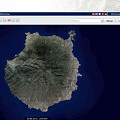 MONITOOL project results obtained in the Canarian region are now available by the IDECanarias viewer of GRAFCAN
GRAFCAN (Cartográfica de Canarias, S.A.), a public entity from Canary Islands Government, has added to its cartographic viewer, IDECanarias, the WMS service "Coastal water quality”. It includes the results obtained during the MONITOOL sampling campaigns carried out by the Canary Islands Institute of Technology (ITC) in 2018 on the four established locations" in Gran Canaria.
To...
MONITOOL project results obtained in the Canarian region are now available by the IDECanarias viewer of GRAFCAN
GRAFCAN (Cartográfica de Canarias, S.A.), a public entity from Canary Islands Government, has added to its cartographic viewer, IDECanarias, the WMS service "Coastal water quality”. It includes the results obtained during the MONITOOL sampling campaigns carried out by the Canary Islands Institute of Technology (ITC) in 2018 on the four established locations" in Gran Canaria.
To... 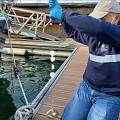 Passive samplers (PS) for the assessment of dredging activity impacts
From October 2021 to January 2022, researchers from AZTI (Basque Country, Spain) used passive samplers (PS) for the assessment of dredging activity impacts on the quality of port waters in the Royal Maritime Club of Abra (Bilbao Port, N. Spain) and supported by the Port Authority of Bilbao.
Following the guidelines developed by the European MONITOOL project[1], Diffusive Gradients in Thin- films (DGT) PS were deployed (5 days)...
Passive samplers (PS) for the assessment of dredging activity impacts
From October 2021 to January 2022, researchers from AZTI (Basque Country, Spain) used passive samplers (PS) for the assessment of dredging activity impacts on the quality of port waters in the Royal Maritime Club of Abra (Bilbao Port, N. Spain) and supported by the Port Authority of Bilbao.
Following the guidelines developed by the European MONITOOL project[1], Diffusive Gradients in Thin- films (DGT) PS were deployed (5 days)...  After 4 years of hard work, MONITOOL Consortium organized on May 17th 2021, a virtual FINAL CONFERENCE. This event had the general objective of sharing with the stakeholders all the work carried out by the Consortium during the project life and, overall, clearly and concisely presenting the results achieved. This Final Conference was also proposed as a way to receive feedback from all the attendees about some of the most important questions covered in MONITOOL.
As a summary, this event...
After 4 years of hard work, MONITOOL Consortium organized on May 17th 2021, a virtual FINAL CONFERENCE. This event had the general objective of sharing with the stakeholders all the work carried out by the Consortium during the project life and, overall, clearly and concisely presenting the results achieved. This Final Conference was also proposed as a way to receive feedback from all the attendees about some of the most important questions covered in MONITOOL.
As a summary, this event...
Interview with Professor Hao Zhang, Lancaster University, UK, and member of the MONITOOL scientific advisory board
Monday, 02 November 2020
Monday, 02 November 2020
 Interview with Professor Hao Zhang, Lancaster University, UK, and member of the MONITOOL scientific advisory board
Professor Hao Zhang, Lancaster University (UK), together with Bill Davison, are the parents of the DGTs, whose research was published in the high standing journal Nature, in 1994. After that, they founded the DGT Research Limited in Lancaster in 1997. Her vast knowledge and experience with DGTs and her high interest in collaborating on the project made her an essential member of...
Interview with Professor Hao Zhang, Lancaster University, UK, and member of the MONITOOL scientific advisory board
Professor Hao Zhang, Lancaster University (UK), together with Bill Davison, are the parents of the DGTs, whose research was published in the high standing journal Nature, in 1994. After that, they founded the DGT Research Limited in Lancaster in 1997. Her vast knowledge and experience with DGTs and her high interest in collaborating on the project made her an essential member of...
Designing and development of an additional experiment performed by IFREMER at the laboratory
Thursday, 29 October 2020
Thursday, 29 October 2020
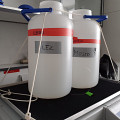 Designing and development of an additional experiment performed by IFREMER at the laboratory
Monitool results point out that, even in suspected highly contaminated sites (harbours, marinas, etc.), concentrations of metals (Cd, Ni and Pb) in marine water (dissolved fraction) are far below the AA-EQSmarine water. In an attempt to solve this and other matters, a new study appeared to be necessary. Therefore, Ifremer proposed to carry on an additional experiment to get more data in laboratory...
Designing and development of an additional experiment performed by IFREMER at the laboratory
Monitool results point out that, even in suspected highly contaminated sites (harbours, marinas, etc.), concentrations of metals (Cd, Ni and Pb) in marine water (dissolved fraction) are far below the AA-EQSmarine water. In an attempt to solve this and other matters, a new study appeared to be necessary. Therefore, Ifremer proposed to carry on an additional experiment to get more data in laboratory... 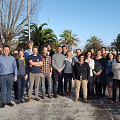 AZTI presents MONITOOL results at different scientific events during 2020
The work conducted and the knowledge gained along MONITOOL lifetime have been presented by AZTI at four different scientific events. One of them was attended face-to-face and the other three events took place virtually due to the COVID-19 restrictions.
AZTI presents MONITOOL results at different scientific events during 2020
The work conducted and the knowledge gained along MONITOOL lifetime have been presented by AZTI at four different scientific events. One of them was attended face-to-face and the other three events took place virtually due to the COVID-19 restrictions.
Instituto Tecnológico de Canarias (ITC) carried out a wastewater sampling campaign following the MONITOOL standardized methods
Tuesday, 13 October 2020
Tuesday, 13 October 2020
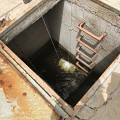 Instituto Tecnológico de Canarias (ITC) carried out a wastewater sampling campaign following the MONITOOL standardized methods
Detecting and monitoring the level of contaminants in water bodies is a key element of the Water Framework Directive, WFD (2000/60/EC). The Directive 2013/39/EU of the European Parliament and of the Council of 12 august 2013 includes some heavy metals as priority substances: Cd, Hg, Ni and Pb. Its transposition to Spanish regulation (Real Decreto 817/2015) also...
Instituto Tecnológico de Canarias (ITC) carried out a wastewater sampling campaign following the MONITOOL standardized methods
Detecting and monitoring the level of contaminants in water bodies is a key element of the Water Framework Directive, WFD (2000/60/EC). The Directive 2013/39/EU of the European Parliament and of the Council of 12 august 2013 includes some heavy metals as priority substances: Cd, Hg, Ni and Pb. Its transposition to Spanish regulation (Real Decreto 817/2015) also...
DCU Masters student, Martin Nolan, submits his MSc Thesis based on MONITOOL acquired knowledge
Monday, 13 July 2020
Monday, 13 July 2020
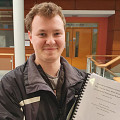 DCU Masters student, Martin Nolan, submits his MSc Thesis based on MONITOOL acquired knowledge
Martin Nolan (Dublin City University, DCU) presented in May his MSc Thesis under the Title "Evaluation of Diffusive Gradients in Thin Films for Trace Metal Monitoring of Coastal and Transitional Waterways", supervised by Dr. Blánaid White and Prof. Fiona Regan, based on works carried out during MONITOOL Project.
This work contains chapters rooted in different phases of MONITOOL Project, as monitoring...
DCU Masters student, Martin Nolan, submits his MSc Thesis based on MONITOOL acquired knowledge
Martin Nolan (Dublin City University, DCU) presented in May his MSc Thesis under the Title "Evaluation of Diffusive Gradients in Thin Films for Trace Metal Monitoring of Coastal and Transitional Waterways", supervised by Dr. Blánaid White and Prof. Fiona Regan, based on works carried out during MONITOOL Project.
This work contains chapters rooted in different phases of MONITOOL Project, as monitoring... 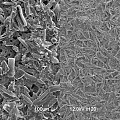 Evaluation of the impact of biofouling on deployments of DGT
Deployments of Diffusive Gradients in Thin Film (DGT) devices in environmental waters can be made challenging due to the impact of biofouling. Biofouling is the attachment and growth of undesirable organisms on a surface and can impact the effectiveness of the DGT device. When microbial species such as bacteria and diatoms grow on the surface, they produce a sugar- and protein- rich substance known as extracellular polymeric substances...
Evaluation of the impact of biofouling on deployments of DGT
Deployments of Diffusive Gradients in Thin Film (DGT) devices in environmental waters can be made challenging due to the impact of biofouling. Biofouling is the attachment and growth of undesirable organisms on a surface and can impact the effectiveness of the DGT device. When microbial species such as bacteria and diatoms grow on the surface, they produce a sugar- and protein- rich substance known as extracellular polymeric substances... 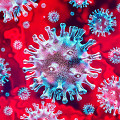 COVID-19 impact on MONITOOL project implementation
As everybody knows, the spread of the infection by the COVID-19 has been severely affected our lives and, in consequence, also to our planned activities on MONITOOL project.
All partner's institutions are closed and staff are working at home, except for very few people who carry out the critical authorized work.
In this sense, it's time to well organize all the pending MONITOOL works.
For example, a last experiment posed by IFREMER in order to...
COVID-19 impact on MONITOOL project implementation
As everybody knows, the spread of the infection by the COVID-19 has been severely affected our lives and, in consequence, also to our planned activities on MONITOOL project.
All partner's institutions are closed and staff are working at home, except for very few people who carry out the critical authorized work.
In this sense, it's time to well organize all the pending MONITOOL works.
For example, a last experiment posed by IFREMER in order to...  MONITOOL Partners take part in the annual ICES expert’s meetings
Every year the International Council for the Exploration of the Sea (ICES) organises the meeting of experts from the North Sea and Atlantic regions to debate the most important and novel issues on the different fields of the Marine Environmental Sciences.
For several years, some members of MONITOOL project have attended the ICES working group of experts on marine chemistry and on marine sediments in relation to pollution....
MONITOOL Partners take part in the annual ICES expert’s meetings
Every year the International Council for the Exploration of the Sea (ICES) organises the meeting of experts from the North Sea and Atlantic regions to debate the most important and novel issues on the different fields of the Marine Environmental Sciences.
For several years, some members of MONITOOL project have attended the ICES working group of experts on marine chemistry and on marine sediments in relation to pollution....
Technical conference on passive samplers and MONITOOL project takes place in the Basque Country
Tuesday, 31 March 2020
Tuesday, 31 March 2020
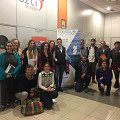 Technical conference on passive samplers and MONITOOL project takes place in the Basque Country
Under the framework of MONITOL project, the last 12th March AZTI hosted a technical conference on passive samplers with the aim of presenting the MONITOOL project and the use of the most commonly used passive sampling techniques to evaluate the contamination of the environment.
Dr. Jean-Luis Gonzalez (IFREMER), Dr Iratxe Menchaca and Dr María Jesús Belzunce from AZTI explained to the attendees the...
Technical conference on passive samplers and MONITOOL project takes place in the Basque Country
Under the framework of MONITOL project, the last 12th March AZTI hosted a technical conference on passive samplers with the aim of presenting the MONITOOL project and the use of the most commonly used passive sampling techniques to evaluate the contamination of the environment.
Dr. Jean-Luis Gonzalez (IFREMER), Dr Iratxe Menchaca and Dr María Jesús Belzunce from AZTI explained to the attendees the...
Interview with Isabelle Amouroux, leader of MONITOOL Work Package 6 (EQS Adaptation and Chemical Status Assessment)
Wednesday, 11 March 2020
Wednesday, 11 March 2020
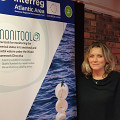 Interview with Isabelle Amouroux, leader of MONITOOL Work Package 6 (EQS Adaptation and Chemical Status Assessment)
Isabelle Amouroux works in the Biogeochemistry and Ecotoxicology Unit (Chemical Risk Analysis group) of Ifremer (Institut Français de Recherche pour l'Exploitation de la Mer: French Research Institute for Exploitation of the Sea) a French public organisation.
She has many years of experience working on monitoring of marine water quality and chemical risk assessment.
What is the...
Interview with Isabelle Amouroux, leader of MONITOOL Work Package 6 (EQS Adaptation and Chemical Status Assessment)
Isabelle Amouroux works in the Biogeochemistry and Ecotoxicology Unit (Chemical Risk Analysis group) of Ifremer (Institut Français de Recherche pour l'Exploitation de la Mer: French Research Institute for Exploitation of the Sea) a French public organisation.
She has many years of experience working on monitoring of marine water quality and chemical risk assessment.
What is the...
MONITOOL partners share and assess the results in Nantes and proceed with the last steps of the project
Friday, 28 February 2020
Friday, 28 February 2020
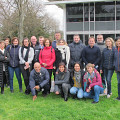 MONITOOL partners share and assess the results in Nantes and proceed with the last steps of the project
Ifremer has hosted the 5th progress meeting of MONITOOL Project, where all the partners shared the remarkable work done during the last months and showed their commitment for the next steps to be taken.
The meeting of 11th and 12th of February was held in IFREMER facilities (Institut Français de Recherche pour l'Exploitation de la Mer) in Nantes (France), and all the partners were given the...
MONITOOL partners share and assess the results in Nantes and proceed with the last steps of the project
Ifremer has hosted the 5th progress meeting of MONITOOL Project, where all the partners shared the remarkable work done during the last months and showed their commitment for the next steps to be taken.
The meeting of 11th and 12th of February was held in IFREMER facilities (Institut Français de Recherche pour l'Exploitation de la Mer) in Nantes (France), and all the partners were given the...
Interview with Maria J. Belzunce Ph.D., leader of MONITOOL Work Package 4 (Database Management and correlation studies)
Tuesday, 22 October 2019
Tuesday, 22 October 2019
 Interview with Maria J. Belzunce Ph.D., leader of MONITOOL Work Package 4 (Database Management and correlation studies)
Maria J. Belzunce Ph.D. leads the Work Package 4 (Database Management and correlation studies) of the MONITOOL project. She works in the Marine Research Division of AZTI Foundation, located in the Basque Country - Spain. She has over 20 years experience working on trace metals and their effects in the marine environment.
What is the aim of Work Package 4?
The purpose of Work...
Interview with Maria J. Belzunce Ph.D., leader of MONITOOL Work Package 4 (Database Management and correlation studies)
Maria J. Belzunce Ph.D. leads the Work Package 4 (Database Management and correlation studies) of the MONITOOL project. She works in the Marine Research Division of AZTI Foundation, located in the Basque Country - Spain. She has over 20 years experience working on trace metals and their effects in the marine environment.
What is the aim of Work Package 4?
The purpose of Work... 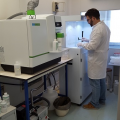 IPMA complete metal analysis in seawater samples
The MONITOOL project aims to establish technical/scientific conditions to monitor existing metal contaminants in the coastal and estuarine waters using passive sampler devices. This objective is particularly important for monitoring the chemical state of these waters to further application to the Water Framework Directive (WFD) and the Marine Strategy Framework Directive.
The Portuguese Institute of the Sea and Atmosphere (IPMA) was the partner...
IPMA complete metal analysis in seawater samples
The MONITOOL project aims to establish technical/scientific conditions to monitor existing metal contaminants in the coastal and estuarine waters using passive sampler devices. This objective is particularly important for monitoring the chemical state of these waters to further application to the Water Framework Directive (WFD) and the Marine Strategy Framework Directive.
The Portuguese Institute of the Sea and Atmosphere (IPMA) was the partner...
UNICA (University of Cagliari) organized a conference the 20 June 2019 in Cagliari
Friday, 06 September 2019
Friday, 06 September 2019
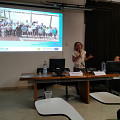 UNICA (University of Cagliari) organized a conference the 20 June 2019 in Cagliari
UNICA (University of Cagliari) organized a conference the 20 June 2019 in Cagliari, entitled “New approaches for the quality assessment of the marine environment in the context of European Directives”. The aim of this event was to present the objectives and first results of MONITOOL to a broad audience, composed of stakeholders, harbour authorities, university professors from different disciplines and experts in the...
UNICA (University of Cagliari) organized a conference the 20 June 2019 in Cagliari
UNICA (University of Cagliari) organized a conference the 20 June 2019 in Cagliari, entitled “New approaches for the quality assessment of the marine environment in the context of European Directives”. The aim of this event was to present the objectives and first results of MONITOOL to a broad audience, composed of stakeholders, harbour authorities, university professors from different disciplines and experts in the... 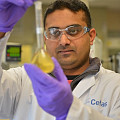 MONITOOL Data Quality Assurance: a holistic view
The significant number of Diffusive Gradient in Thin films (DGTs) passive samplers and spot samples collected during the Winter and Summer Seasons campaigns were transported during 2018 to designated MONITOOL partner laboratories for the analysis of a range of heavy metals, including lead, cadmium and nickel, which are regulated under the EU Water Framework Directive.
IFREMER [1] was responsible for the analysis of DGTs, while the filtered spot...
MONITOOL Data Quality Assurance: a holistic view
The significant number of Diffusive Gradient in Thin films (DGTs) passive samplers and spot samples collected during the Winter and Summer Seasons campaigns were transported during 2018 to designated MONITOOL partner laboratories for the analysis of a range of heavy metals, including lead, cadmium and nickel, which are regulated under the EU Water Framework Directive.
IFREMER [1] was responsible for the analysis of DGTs, while the filtered spot...
DGT Conference 2019 will be the fifth international scientific event with MONITOOL presence in 2019
Monday, 02 September 2019
Monday, 02 September 2019
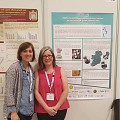 DGT Conference 2019 will be the fifth international scientific event with MONITOOL presence in 2019
Until the end of August, MONITOOL participated in 4 scientific events presenting the project and its first results. On September will take place the 5th event, with the attendance to the DGT Conference 2019 in Vienna.
2019 is being a productive year. Project´s partners attended 4 different international events during the first half of this year for the dissemination of the knowledge acquired...
DGT Conference 2019 will be the fifth international scientific event with MONITOOL presence in 2019
Until the end of August, MONITOOL participated in 4 scientific events presenting the project and its first results. On September will take place the 5th event, with the attendance to the DGT Conference 2019 in Vienna.
2019 is being a productive year. Project´s partners attended 4 different international events during the first half of this year for the dissemination of the knowledge acquired... 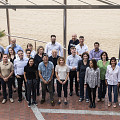 MONITOOL partners share results and plan next steps in Gran Canaria
The 4th general meeting have taken place in Gran Canaria with the presence of all MONITOOL partners. They have reviewed and discussed the results from sampling campaigns in all regions, and have agreed next steps under the project´s Scientific Advisory Board recommendations.
During May 23rd and 24th, the Instituto Tecnológico de Canarias (ITC) hosted, in Las Palmas de Gran Canaria, this 3rd MONITOOL progress meeting (4th...
MONITOOL partners share results and plan next steps in Gran Canaria
The 4th general meeting have taken place in Gran Canaria with the presence of all MONITOOL partners. They have reviewed and discussed the results from sampling campaigns in all regions, and have agreed next steps under the project´s Scientific Advisory Board recommendations.
During May 23rd and 24th, the Instituto Tecnológico de Canarias (ITC) hosted, in Las Palmas de Gran Canaria, this 3rd MONITOOL progress meeting (4th...
Technical conferences present MONITOOL project and DGT passive sampling in the Canary Islands
Monday, 03 June 2019
Monday, 03 June 2019
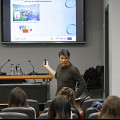 Technical conferences present MONITOOL project and DGT passive sampling in the Canary Islands
ITC has hosted two technical conferences with the aim of presenting the MONITOOL project and disseminating the use of the most commonly used passive sampling techniques to evaluate chemical status of waters.
Vanessa Millán (ITC), Jean-Luis Gonzalez (IFREMER) and M. Jesús Belzunce (AZTI) explained to the attendees the main lines of the project, the advantages of passive sampling methods and how DGT...
Technical conferences present MONITOOL project and DGT passive sampling in the Canary Islands
ITC has hosted two technical conferences with the aim of presenting the MONITOOL project and disseminating the use of the most commonly used passive sampling techniques to evaluate chemical status of waters.
Vanessa Millán (ITC), Jean-Luis Gonzalez (IFREMER) and M. Jesús Belzunce (AZTI) explained to the attendees the main lines of the project, the advantages of passive sampling methods and how DGT...  Thi Bolam, who leads work package 5 (Field sampling and analysis) of the Interreg funded MONITOOL project, is a marine chemist with over 18-year experience working on trace metal and organotin levels in the marine environment and she is currently based at the Cefas Lowestoft laboratory.
What is the purpose of Work Package 5?
Work Package 5 deals with the methods that are applied for field sample collection and for laboratory sample processing and analysis. Partners employ the same processes...
Thi Bolam, who leads work package 5 (Field sampling and analysis) of the Interreg funded MONITOOL project, is a marine chemist with over 18-year experience working on trace metal and organotin levels in the marine environment and she is currently based at the Cefas Lowestoft laboratory.
What is the purpose of Work Package 5?
Work Package 5 deals with the methods that are applied for field sample collection and for laboratory sample processing and analysis. Partners employ the same processes...
ITC will organize 2 technical conferences in the days preceding the next partners´ meeting in Canary Islands
Thursday, 21 February 2019
Thursday, 21 February 2019
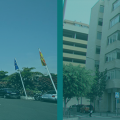 ITC will organize 2 technical conferences in the days preceding the next partners´ meeting in Canary Islands
Next partners´ meeting of MONITOOL Project will take place in Gran Canaria on May 2019 hosted by ITC. Additionally, the event is the opportunity to celebrate two technical conferences, one in each province, Santa Cruz de Tenerife and Las Palmas.
The aim of these two events is to present the MONITOOL project to the attendees, as well as to disseminate the use of most commonly used...
ITC will organize 2 technical conferences in the days preceding the next partners´ meeting in Canary Islands
Next partners´ meeting of MONITOOL Project will take place in Gran Canaria on May 2019 hosted by ITC. Additionally, the event is the opportunity to celebrate two technical conferences, one in each province, Santa Cruz de Tenerife and Las Palmas.
The aim of these two events is to present the MONITOOL project to the attendees, as well as to disseminate the use of most commonly used...
UNICA promotes the application of the MONITOOL approach for other organic compounds
Monday, 11 February 2019
Monday, 11 February 2019
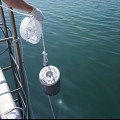 UNICA promotes the application of the MONITOOL approach for other organic compounds
Currently, regulatory chemical monitoring, to comply with the requirements of European Directives (i.e. the Water Framework Directive (WFD)), relies on the collection of spot water samples and the comparison of contaminant concentrations with the existing Environmental Quality Standards (EQSs). However, this approach presents several limitations.
Thus, passive samplers have been suggested as an alternative to spot...
UNICA promotes the application of the MONITOOL approach for other organic compounds
Currently, regulatory chemical monitoring, to comply with the requirements of European Directives (i.e. the Water Framework Directive (WFD)), relies on the collection of spot water samples and the comparison of contaminant concentrations with the existing Environmental Quality Standards (EQSs). However, this approach presents several limitations.
Thus, passive samplers have been suggested as an alternative to spot... 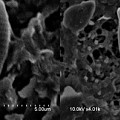 DCU analyses biofouling on MONITOOL DGTs
Passive sampling of contaminants in water bodies is based on the accumulation of target compounds in a membrane, resin or gel, through which water continually flows. The passive samplers used in Monitool are diffusive gradients in thin-films (DGT), and they are used to monitor metal concentrations in seawaters along the Atlantic coast. Many of the metals we are analysing in Monitool are present in seawaters in very low concentrations. However, DGTs can...
DCU analyses biofouling on MONITOOL DGTs
Passive sampling of contaminants in water bodies is based on the accumulation of target compounds in a membrane, resin or gel, through which water continually flows. The passive samplers used in Monitool are diffusive gradients in thin-films (DGT), and they are used to monitor metal concentrations in seawaters along the Atlantic coast. Many of the metals we are analysing in Monitool are present in seawaters in very low concentrations. However, DGTs can... 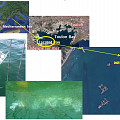 Organisation of the interlaboratory DGT exercise by IFREMER, October 2018
In the framework of the MONITOOL project, work package 5, it was decided to set up an intercomparison exercise on the treatment and analysis of DGTs after exposure.
The general objective of the exercise is to assess the potential function and the efficiency of DGTs for trace metals monitoring in surface and coastal waters in the context of the Water Framework Directive (WFD).
More specifically, the main technical and...
Organisation of the interlaboratory DGT exercise by IFREMER, October 2018
In the framework of the MONITOOL project, work package 5, it was decided to set up an intercomparison exercise on the treatment and analysis of DGTs after exposure.
The general objective of the exercise is to assess the potential function and the efficiency of DGTs for trace metals monitoring in surface and coastal waters in the context of the Water Framework Directive (WFD).
More specifically, the main technical and... 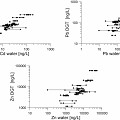 Database Management and correlation studies. First promising results.
The general objective of the Work Package 4 is to develop a database that allows the compilation and interchange of all information generated during the study. This includes the simultaneously determination of metals in seawater by ‘classical’ procedures (i.e., by spot sampling) and by Diffusive Gradient in Thin films (DGTs). This database is focused on transitional and coastal water locations from the whole Atlantic Region...
Database Management and correlation studies. First promising results.
The general objective of the Work Package 4 is to develop a database that allows the compilation and interchange of all information generated during the study. This includes the simultaneously determination of metals in seawater by ‘classical’ procedures (i.e., by spot sampling) and by Diffusive Gradient in Thin films (DGTs). This database is focused on transitional and coastal water locations from the whole Atlantic Region...
Interview with Dr. Blánaid White, coordinator of Interreg founded MONITOOL project
Friday, 26 October 2018
Friday, 26 October 2018
 Interview with Dr. Blánaid White, coordinator of Interreg founded MONITOOL
Dr. Blánaid White, who coordinates Interreg funded MONITOOL project, is an Associate Professor in Analytical Chemistry and currently Associate Dean for Teaching and Learning at Faculty of Science and Health in the School of Chemical Sciences, National Centre for Sensor Research, Dublin City University Water Institute.
- What is the MONITOOL project?
The MONITOOL project is an exciting multi-million euro European water...
Interview with Dr. Blánaid White, coordinator of Interreg founded MONITOOL
Dr. Blánaid White, who coordinates Interreg funded MONITOOL project, is an Associate Professor in Analytical Chemistry and currently Associate Dean for Teaching and Learning at Faculty of Science and Health in the School of Chemical Sciences, National Centre for Sensor Research, Dublin City University Water Institute.
- What is the MONITOOL project?
The MONITOOL project is an exciting multi-million euro European water... 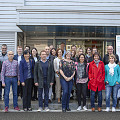 MONITOOL partners discuss project´s first results in AZTI, San Sebastián
3rd MONITOOL Partners meeting, celebrated in San Sebastián last week, gave the participants the opportunity to discuss in depth the wet season sampling campaign results.
San Sebastián, Spain, hosted the third meeting between MONITOOL project partners. During this two-day event, 9 -10 October 2018, the participants talked about the first metal results of the wet-season sampling campaign. Associated partners were also present,...
MONITOOL partners discuss project´s first results in AZTI, San Sebastián
3rd MONITOOL Partners meeting, celebrated in San Sebastián last week, gave the participants the opportunity to discuss in depth the wet season sampling campaign results.
San Sebastián, Spain, hosted the third meeting between MONITOOL project partners. During this two-day event, 9 -10 October 2018, the participants talked about the first metal results of the wet-season sampling campaign. Associated partners were also present,... 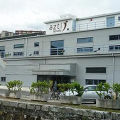 AZTI hosts 3rd MONITOOL meeting in San Sebastian
The third meeting between partners of the MONITOOL Project will be held in San Sebastian on October 9th and 10th. The conference will be the opportunity to share the first results of the wet season sampling campaigns.
San Sebastian, in Spain, is the next place where the MONITOOL partners will share the latest results of the project. First results from the DGTs deployed last winter are already available, and also the dry season campaigns finished...
AZTI hosts 3rd MONITOOL meeting in San Sebastian
The third meeting between partners of the MONITOOL Project will be held in San Sebastian on October 9th and 10th. The conference will be the opportunity to share the first results of the wet season sampling campaigns.
San Sebastian, in Spain, is the next place where the MONITOOL partners will share the latest results of the project. First results from the DGTs deployed last winter are already available, and also the dry season campaigns finished... 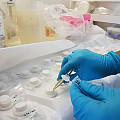 DGT extraction and metal analysis by IFREMER
The DGT technique is used to extract and concentrate metal cations in situ. Their use has shown that this approach is applicable for many metallic elements (Ag, Al, Cd, Co, Cr, Cu, Fe, Mn, Ni, Pb, Zn).
Photo: DGT resine recovery – april 2018
DGT are very simple devices to implement. They irreversibly accumulate (on a Chelex 100 resin) the most "labile" dissolved metal cations (hydrated ions, mineral complexes, small organic complexes) depending on...
DGT extraction and metal analysis by IFREMER
The DGT technique is used to extract and concentrate metal cations in situ. Their use has shown that this approach is applicable for many metallic elements (Ag, Al, Cd, Co, Cr, Cu, Fe, Mn, Ni, Pb, Zn).
Photo: DGT resine recovery – april 2018
DGT are very simple devices to implement. They irreversibly accumulate (on a Chelex 100 resin) the most "labile" dissolved metal cations (hydrated ions, mineral complexes, small organic complexes) depending on...
Determination of lead and cadmium labile fraction by Anodic Stripping Voltammetry and total dissolved Nickel Cathodic Stripping Voltammetry
Thursday, 09 August 2018
Thursday, 09 August 2018
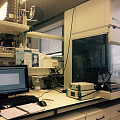 Determination of lead and cadmium labile fraction by Anodic Stripping Voltammetry and total dissolved Nickel Cathodic Stripping Voltammetry by IST (Lisbon, Portugal)
MONITOOL has as main target to adapt suitable Environmental Quality Standards (EQSs) for priority and specific metals to allow the use of Diffusive Gradient Thin films (DGTs) for water monitoring. DGTs are a type of passive sampling devices (PSDs) that measure the concentration of labile species present in aquatic media, better...
Determination of lead and cadmium labile fraction by Anodic Stripping Voltammetry and total dissolved Nickel Cathodic Stripping Voltammetry by IST (Lisbon, Portugal)
MONITOOL has as main target to adapt suitable Environmental Quality Standards (EQSs) for priority and specific metals to allow the use of Diffusive Gradient Thin films (DGTs) for water monitoring. DGTs are a type of passive sampling devices (PSDs) that measure the concentration of labile species present in aquatic media, better...
Last EEA report shows the importance of Water Framework Directive (WFD) to keep and improve waters quality in Europe
Thursday, 19 July 2018
Thursday, 19 July 2018
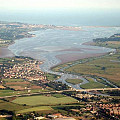 Last EEA report shows the importance of Water Framework Directive (WFD) to keep and improve waters quality in Europe
European Environment Agency (EEA) has published a report which gives an updated health check over European surface and groundwater bodies, showing the good general status of waters on the continent and the big challenges remain. Implementation of European water legislation has ensured this improvement, “but much more needs to be done”.
Only 40% of monitored lakes, rivers,...
Last EEA report shows the importance of Water Framework Directive (WFD) to keep and improve waters quality in Europe
European Environment Agency (EEA) has published a report which gives an updated health check over European surface and groundwater bodies, showing the good general status of waters on the continent and the big challenges remain. Implementation of European water legislation has ensured this improvement, “but much more needs to be done”.
Only 40% of monitored lakes, rivers,... 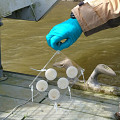 MONITOOL project analyses its winter samples and obtains their first results
MONITOOL Project has finished its first sampling campaign, carried out between January and March 2018, along the whole European Atlantic Area and represented by more than 30 sampling locations, both coastal and transitional. The campaign has consisted of deployments of DGT devices, alongside spot sampling and physicochemical parameter measurement by all partners (following the same protocols). Currently, the...
MONITOOL project analyses its winter samples and obtains their first results
MONITOOL Project has finished its first sampling campaign, carried out between January and March 2018, along the whole European Atlantic Area and represented by more than 30 sampling locations, both coastal and transitional. The campaign has consisted of deployments of DGT devices, alongside spot sampling and physicochemical parameter measurement by all partners (following the same protocols). Currently, the... 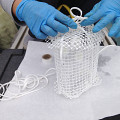 ITC has carried out an additional MONITOOL sampling campaign
Due to lack of DGT based metal information in the Canary Islands, ITC (Instituto Tecnológico de Canarias) has carried out an additional sampling, during June 18th-22th, that will allow a better comparison and interpretation of MONITOOL results in this area.
During this campaign, two sampling locations have been selected at Gran Canaria Island, both in the Puerto de La Luz y de Las Palmas: Real Club Náutico de Gran Canaria marina and...
ITC has carried out an additional MONITOOL sampling campaign
Due to lack of DGT based metal information in the Canary Islands, ITC (Instituto Tecnológico de Canarias) has carried out an additional sampling, during June 18th-22th, that will allow a better comparison and interpretation of MONITOOL results in this area.
During this campaign, two sampling locations have been selected at Gran Canaria Island, both in the Puerto de La Luz y de Las Palmas: Real Club Náutico de Gran Canaria marina and... 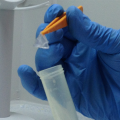 Sampling and sample processing and analysis WP5 protocols development
Operational variability can have a major impact on the data interpretation due to the different sampling and analytical methods used by all Partners as it can lead to incompatible results and resulting in the dataset being incomparable. In order minimise this issue, protocols (sampling and analysis) are required to enable all Partner to apply the same methods for field samples collection and for laboratory samples processing...
Sampling and sample processing and analysis WP5 protocols development
Operational variability can have a major impact on the data interpretation due to the different sampling and analytical methods used by all Partners as it can lead to incompatible results and resulting in the dataset being incomparable. In order minimise this issue, protocols (sampling and analysis) are required to enable all Partner to apply the same methods for field samples collection and for laboratory samples processing... 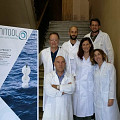 UNICA contributes to MONITOOL project from outside Atlantic Region
The Università degli Studi di Cagliari (UNICA; Italy) is participating in the MONITOOL project as a Partner from outside the Atlantic Region, which operates in the Mediterranean. The main tasks of this institution research group are:
- to collaborate in the development of sampling and sample handling protocols
- to perform two sampling campaigns, in wet and dry seasons
- to participate in an intercalibration exercise
- to...
UNICA contributes to MONITOOL project from outside Atlantic Region
The Università degli Studi di Cagliari (UNICA; Italy) is participating in the MONITOOL project as a Partner from outside the Atlantic Region, which operates in the Mediterranean. The main tasks of this institution research group are:
- to collaborate in the development of sampling and sample handling protocols
- to perform two sampling campaigns, in wet and dry seasons
- to participate in an intercalibration exercise
- to...
Implementation of seaFAST equipment at IPMA for the analysis of total metal concentrations in MONITOOL water samples
Monday, 02 July 2018
Monday, 02 July 2018
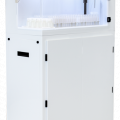 Implementation of seaFAST equipment at IPMA for the analysis of total metal concentrations in MONITOOL water samples
The MONITOOL project aims to monitor existing metal contaminants in the coastal and estuarine waters of the partners involved. This aim is important for the monitoring the chemical status of these waters.
The Portuguese Institute of the Sea and Atmosphere (IPMA) is responsible for the task involving the determination of trace metals in the water. To achieve this goal an ongoing...
Implementation of seaFAST equipment at IPMA for the analysis of total metal concentrations in MONITOOL water samples
The MONITOOL project aims to monitor existing metal contaminants in the coastal and estuarine waters of the partners involved. This aim is important for the monitoring the chemical status of these waters.
The Portuguese Institute of the Sea and Atmosphere (IPMA) is responsible for the task involving the determination of trace metals in the water. To achieve this goal an ongoing...
MONITOOL Project, present at the 10th International Passive Sampling Workshop and Symposium in Dublin
Monday, 21 May 2018
Monday, 21 May 2018
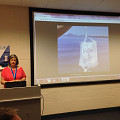 MONITOOL Project has participated in IPSW 2018, an internationally recognized platform of passive sampling methods experts, with several actions. All project partners were present at this even in Dublin which has coincided with second general meeting of the project.
A MONITOOL satellite workshop was organised by partners. During the event were presented previous case studies and practical considerations for DG, exploring the potential role of DGTs in a regulatory and legislative context. In...
MONITOOL Project has participated in IPSW 2018, an internationally recognized platform of passive sampling methods experts, with several actions. All project partners were present at this even in Dublin which has coincided with second general meeting of the project.
A MONITOOL satellite workshop was organised by partners. During the event were presented previous case studies and practical considerations for DG, exploring the potential role of DGTs in a regulatory and legislative context. In... 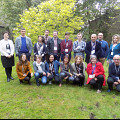 The second partners meeting of MONITOOL took place in Dublin the 9th of May, where results of the recent sampling campaigns (carried out between January and March of present year) have been discussed. This meeting took place coinciding with the 10th International Passive Sampling Workshop and Symposium (IPSW 2018), also held at Dublin City University between 9th and 11th May 2018.
During the meeting, partners presented the progress achieved in the different project´s work packages, as well as...
The second partners meeting of MONITOOL took place in Dublin the 9th of May, where results of the recent sampling campaigns (carried out between January and March of present year) have been discussed. This meeting took place coinciding with the 10th International Passive Sampling Workshop and Symposium (IPSW 2018), also held at Dublin City University between 9th and 11th May 2018.
During the meeting, partners presented the progress achieved in the different project´s work packages, as well as...
ITC starts MONITOOL sampling in coastal waters of Gran Canaria (5th - 12th March 2018)
Friday, 09 March 2018
Friday, 09 March 2018
 MONITOOL Project is already present in the coasts of the Canary Islands. ITC (Instituto Tecnológico de Canarias) has started the DGT deployment in 4 locations of Gran Canaria island. This action is within the Wet Sampling Campaigns period, which is expected to finish at the end of March.
The study areas in Gran Canaria have been: Puerto de la Luz y de Las Palmas, Jinámar, Taliarte and Gando. In these locations, the research has been possible due to the collaboration of Real Club Náutico de Gran...
MONITOOL Project is already present in the coasts of the Canary Islands. ITC (Instituto Tecnológico de Canarias) has started the DGT deployment in 4 locations of Gran Canaria island. This action is within the Wet Sampling Campaigns period, which is expected to finish at the end of March.
The study areas in Gran Canaria have been: Puerto de la Luz y de Las Palmas, Jinámar, Taliarte and Gando. In these locations, the research has been possible due to the collaboration of Real Club Náutico de Gran... 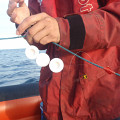 MONITOOL Project starts its first sampling campaigns to obtain water chemical status information along the whole European Atlantic Area, from the Scottish Highlands and Islands to Canary Islands. It will take place between January and March of current year.
In these campaigns, passive sampling devices (DGTs type: Diffusive Gradient in Thin films) and spot water samples are both used. The aim is to obtain a robust database to adapt existing Environmental Quality Standards (EQS; 0.45...
MONITOOL Project starts its first sampling campaigns to obtain water chemical status information along the whole European Atlantic Area, from the Scottish Highlands and Islands to Canary Islands. It will take place between January and March of current year.
In these campaigns, passive sampling devices (DGTs type: Diffusive Gradient in Thin films) and spot water samples are both used. The aim is to obtain a robust database to adapt existing Environmental Quality Standards (EQS; 0.45...
MONITOOL Project present at DCU-UniSA Sensors Workshop (Dublin, November 2018)
Monday, 04 December 2017
Monday, 04 December 2017
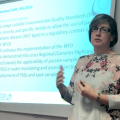 MONITOOL has been one of the projects presented during the workshop taken place on Dublin last November between Dublin City University (DCU) and University of South Australia (UniSA).
Both universities, which have recently signed a research collaboration agreement, have shared information about their projects related with sensors and the different ways of chemical status monitoring on different places and material status.
Dr. Blánaid White, whose research group is developing several projects...
MONITOOL has been one of the projects presented during the workshop taken place on Dublin last November between Dublin City University (DCU) and University of South Australia (UniSA).
Both universities, which have recently signed a research collaboration agreement, have shared information about their projects related with sensors and the different ways of chemical status monitoring on different places and material status.
Dr. Blánaid White, whose research group is developing several projects... 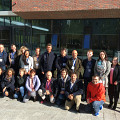 MONITOOL Kick-off meeting (14th- 15th September 2017)
The project kick-off meeting of the European MONITOOL initiative has taken place on 14 and 15 September in Dublin, bringing together all institutions involved, both partners and associated partners.
During the meeting, after an overview of MONITOOL structure and objectives as well as project management and financial aspects, all project Work packages were presented by corresponding leaders after which discussions concerning the more...
MONITOOL Kick-off meeting (14th- 15th September 2017)
The project kick-off meeting of the European MONITOOL initiative has taken place on 14 and 15 September in Dublin, bringing together all institutions involved, both partners and associated partners.
During the meeting, after an overview of MONITOOL structure and objectives as well as project management and financial aspects, all project Work packages were presented by corresponding leaders after which discussions concerning the more... - Thursday, 14 September 2017 MONITOOL in the DGT Conference 2017 (Gold Coast, Australia)



